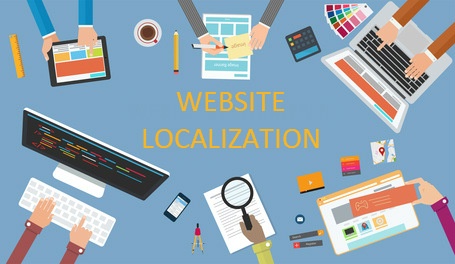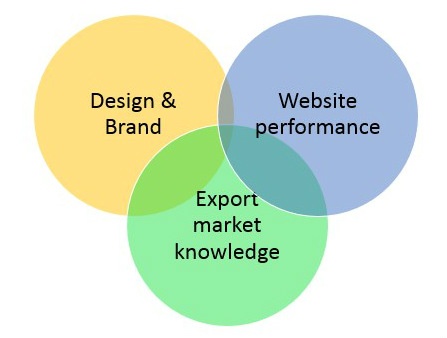You might be working with a web agency that is very artistic and design oriented, focusing on developing your brand. Or you might be working with a web agency that is more results oriented, focusing on search engine optimization and driving visitors to the site. In the best case, your web agency can offer you both - unique custom design and a superior website performance. The best agencies specify website features based on your requirements and those of your website’s users. They create great online platforms, supporting and driving your sales in your home market. Market, which both you and your web agency know very well.
But what about your export markets? Does your local web agency have the right skillsets to create and market your international websites and thus grow your business equally successfully abroad?

One of the biggest mistakes companies make in approaching international markets is applying the same strategy that was used in their home market. Requirements and strategies can differ radically in export markets and your international websites must reflect that. Your local web agency might be exceptionally well experienced with design work, home market SEO, local standards and local customer behavior and preferences. However, they most likely lack expertise to address the country specific requirements of your export markets. Many companies are unable to correctly specify their website requirements for their export market simply because they don’t have the local knowledge, insights and expertise. Similarly, their local web agency will be unable to provide that knowledge.
And that’s when website localization experts come into play! They provide you with expertise necessary to adjust the content (text and visual) to your target market’s needs and to ensure your visibility on local search engines. Their knowledge and experience help you address issues that you did not even know existed.

What website localization experts address that most local web agencies cannot:
- Website specification including technical/usability features and content that will support your international business objectives (e.g. distributor acquisition or support)
- Recommendations for local requirements and customer behavior (e.g. preferred payment methods)
- Set up and optimization of CMS (content management system – platform to build a website) with capability to manage multilingual sites (e.g. unique URLs, unique navigation menus, country code subdirectories/subdomains, unique meta titles and meta descriptions)
- Localization, translation and optimization of text for your target market and local search engines (e.g. conversion of units, locally used terminology and keywords)
- Selection of visuals appropriate for each export market (e.g. relevant countryside images)
- Review ensuring content is correctly in place (e.g. ensuring all content has been uploaded to the correct location)
- Compliance with local online requlatory requirements (e.g. Impressum page for Germany)
- Ongoing multilingual support related to online marketing (e.g. search engine optimization, social media, content creation)
Read more about technical requirements for multilingual websites in our blog: 10 CMS requirements for building multilingual websites

